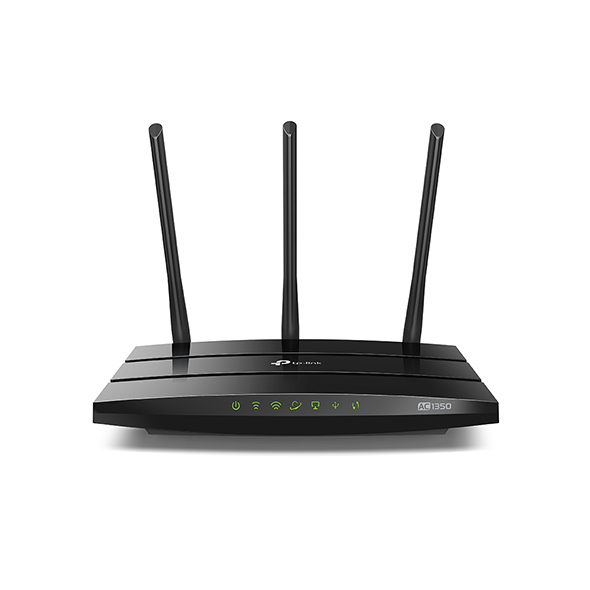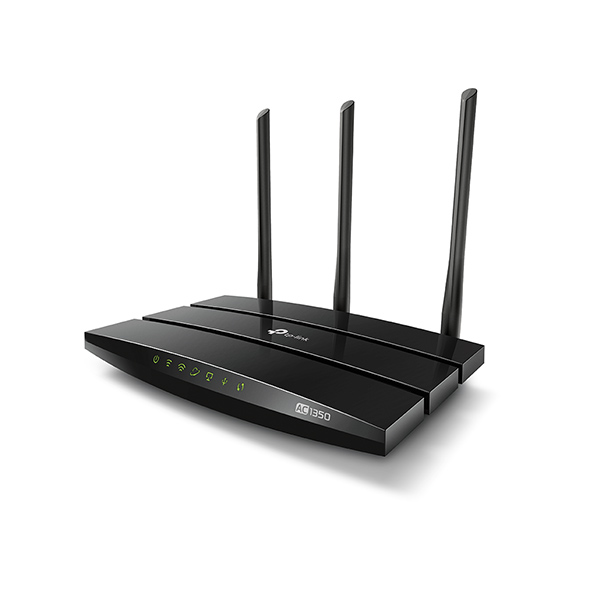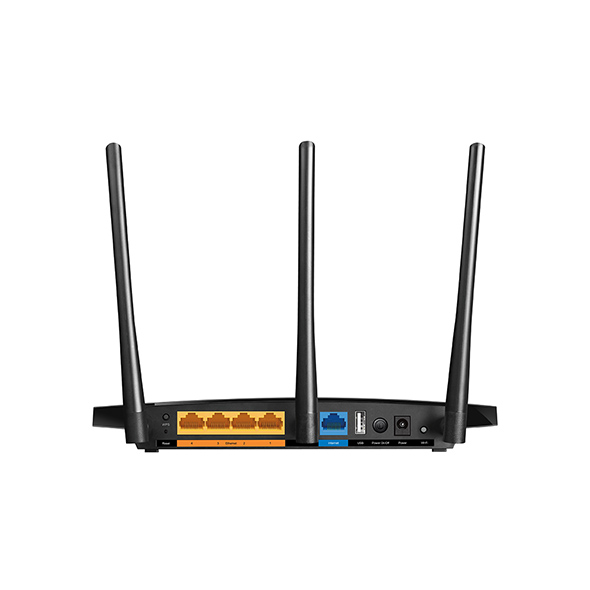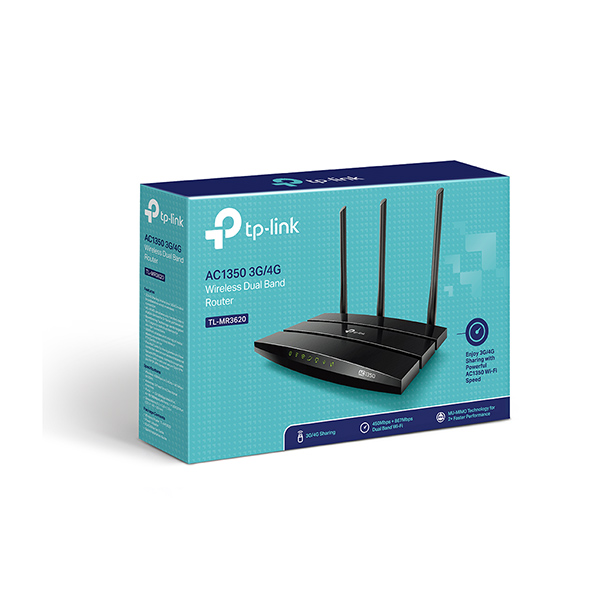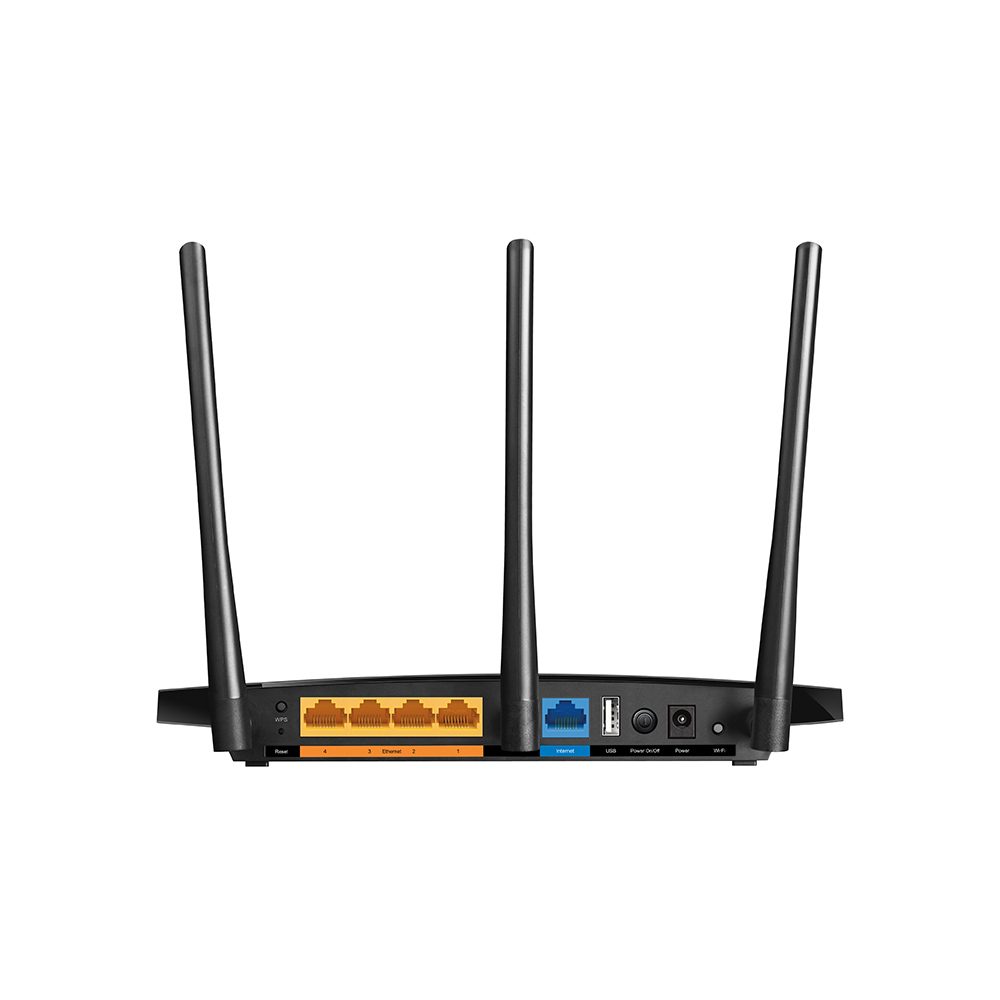TL-MR3620
Coming SoonAC1350 3G/4G Wireless Dual Band Router
- 3G/4G Sharing: shares your 3G/4G mobile broadband via wired or wireless connection
- MU-MIMO: simultaneously transfers data to multiple devices for 2× faster performance
- Beamforming Technology: sends targeted Wi-Fi signal to individual devices for stronger connections
- USB Port: enables print sharing or media sharing via external hard drive or FTP/Samba server
- Parental Controls: manage when and how connected devices can access the internet
- Secure VPN Access: connects to a private network with a safe and secure VPN connection
| HARDWARE FEATURES | |
|---|---|
| Interface | 4 10/100Mbps LAN Ports1 10/100Mbps WAN Port1 USB 2.0 port |
| Button | WPS/Reset ButtonWireless On/Off SwitchPower On/Off Button |
| Power Supply | 12VDC/1A |
| Dimensions ( W x D x H ) | 8.9*5.8*1.3in (225*148*33mm) |
| Antenna | Three 5dBi external antennas |
| WIRELESS FEATURES | |
|---|---|
| Wireless Standards | IEEE 802.11ac/n/a 5GHzIEEE 802.11b/g/n 2.4GHz |
| Wireless Speeds | 450Mbps(2.4GHz)867Mbps(5GHz) |
| Wireless Security | WEPWPA\WPA2WPA-PSK\WPA2-PSK |
| SOFTWARE FEATURES | |
|---|---|
| Quality of Service | WMM, Bandwidth Control |
| WAN Type | Dynamic IP/Static IP/PPPoE/BigPond/ /L2TP(Dual Access) /PPTP(Dual Access) |
| Management Features | Access ControlLocal ManagementRemote Management |
| DHCP | Server, Client, DHCP Client List, Address Reservation |
| VPN Pass-Through | PPTPL2TPIPSec |
| Access Control | Parental ControlLocal Management ControlHost ListAccess ScheduleRule Management |
| Protocols | IPv4IPv6 |
| USB Sharing | 3G/4G sharingSamba(Storage)FTP ServerMedia ServerPrinter Server |
| Guest Network | 2.4GHz guest network5GHz guest network |
| OTHERS | |
|---|---|
| Certification | CE, RoHS |
| Package Content | AC1350 3G/4G Wireless Dual Band Router TL-MR3620Power supply unitEthernet CableQuick Installation Guide |
| Environment | Operating Temperature: 0℃~40 ℃ (32 ℉~104℉)Storage Temperature: -40℃~70 ℃ (-40 ℉~158℉)Operating Humidity: 10%~90% non-condensingStorage Humidity: 5%~90% non-condensing |
| Operating System | Microsoft Windows XP/Vista/7/8/8.1/10MAC OS, NetWare, UNIX or Linux |
*Maximum wireless signal rates are the physical rates derived from IEEE Standard 802.11 specifications. Actual wireless data throughput and wireless coverage, and quantity of connected devices are not guaranteed and will vary as a result of network conditions, client limitations, and environmental factors, including building materials, obstacles, volume and density of traffic, and client location.
